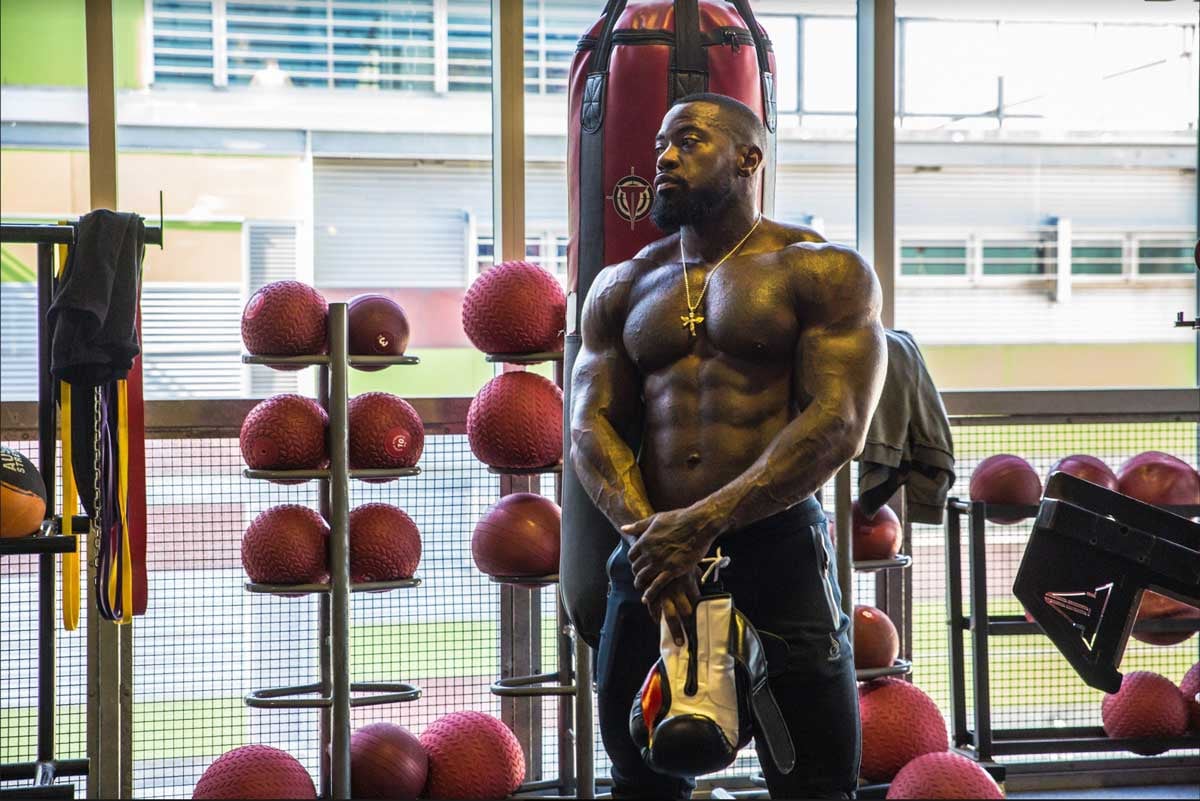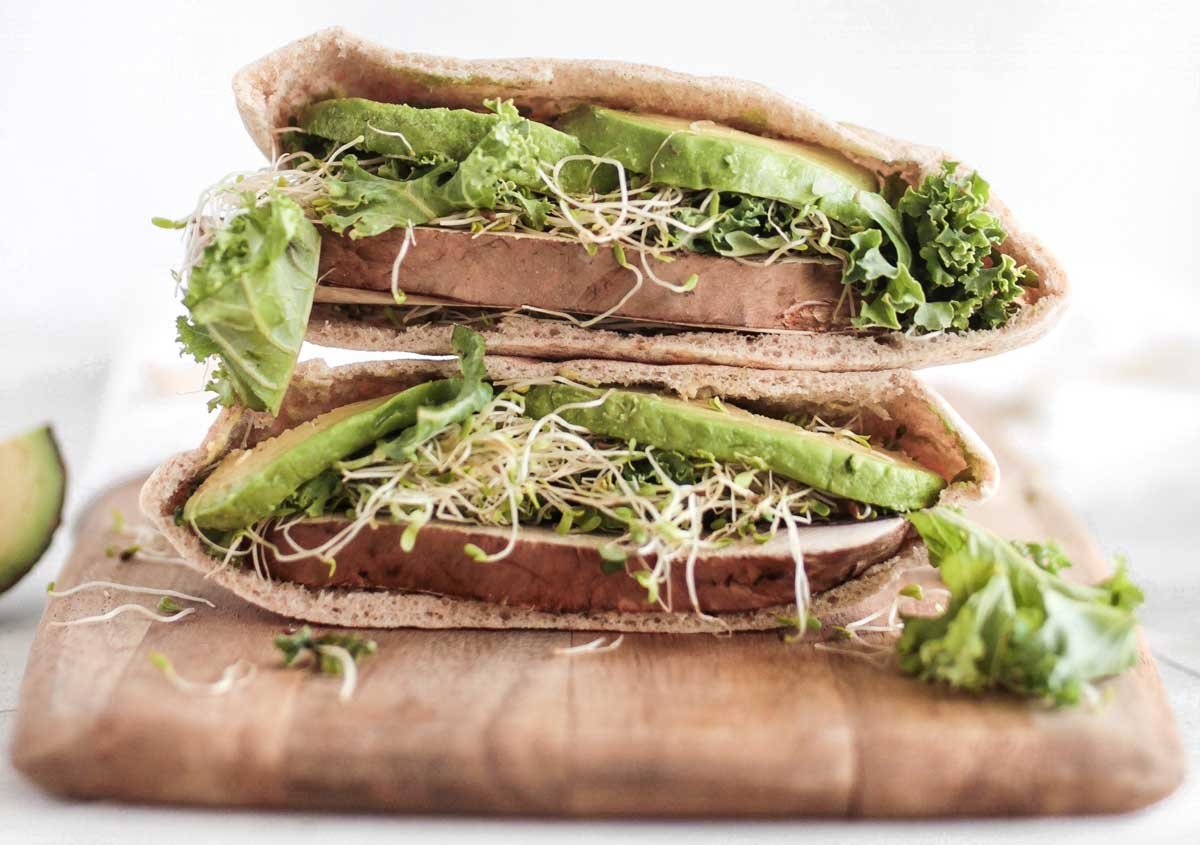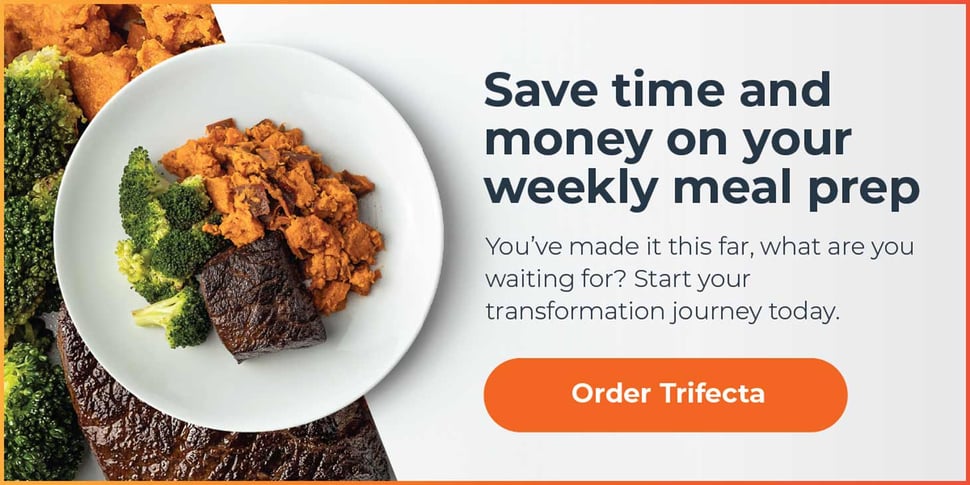For years, it has been thought the best diet for fitness should include plenty of meat and dairy to provide quality protein and essential nutrients for performance. But is it also possible to maximize your output, gain muscle and stay on track by only eating plants?
Some studies suggest that not only is complete nutrition on a plant-based diet attainable but that a well-planned vegan diet may have health benefits and help improve performance (1). And with more and more athletes going vegan, and shouting about the benefits, it is something to seriously consider.
Like power bodybuilder and former professional boxer, Mike Rashid, who felt physically and mentally transformed after going vegan with Trifecta, “I now sleep a full 8 hours and my digestion seems to be so much better. I’ve lost excess body fat, have more energy, and feel younger.”
Or long-time fitness enthusiast and heavy metal guitarist, Doyle Wolfgang Von Frankenstein, that has now been vegan for over five years.
According to Doyle, “Everyone told me I would lose mass or feel tired all the time when I made the switch to plant-based, but the truth is I feel amazing. I have more energy than ever and feel happier in general”.
What is Vegan?
Vegan vs. Vegetarian Diets
A vegan diet represents the ultimate in plant-based eating. While vegetarian diets exclude meat and fish, vegan diets take it one step further eliminating all animal products, including dairy and eggs. This can make getting protein on a vegan diet seem more challenging since common vegetarian protein foods include yogurt, cheese, eggs, and milk - all of which are not considered vegan-friendly. Some will also carry this mentality into the type of clothes, cosmetics, and body care products they use, by avoiding leather and any products made with animal ingredients or tested on animals.
What Are the Benefits of a Vegan Diet for Athletes?
A diet high in plant-based foods has been linked to increased energy, boost mood, and promote heart health (2,3,4,5). And a vegan diet may improve the quality of your nutrition, with higher intakes of fiber, potassium, magnesium, folate, and the antioxidants vitamins A, C, and E (6).
Why is this meaningful for athletes? Good nutrition plays an important role in performance, and veganism can support improved mental state, endurance, training, and recovery.
It is easy to get adequate carbohydrates on an all-plant diet since carbs essentially come from all plant-based foods. And when enough calories are consumed, properly timed carbs provide explosive energy and stamina.
Athletes participate in heavy training that causes stress on the body, leading to acute inflammation - this is why muscles feel so incredibly sore and stiff after a hard workout. Training-induced inflammation can be calmed by adding nutrient-dense foods, like plant-based options that are high in antioxidants. Antioxidants can also help keep your immune system on point and contribute to fighting off illness. Joint pain is what actually motivated Rashid to go vegan in the first place.
“I used to have really bad pain in my knees. So bad, I thought I’d need surgery. My doctor told me that I had no structural damage, and that it had to be inflammation. When I cut meat out, the pain went away. It literally blew my mind.” -Mike Rashid
In addition, adequate intakes of potassium that come from a diet rich in fruits and vegetables may help prevent muscle cramping. And a higher intake of magnesium can help calm nerves and anxiety if a deficiency is present - keeping you physically and mentally ready for anything. As Rashid puts it, “I feel an overall sense of well-being. I feel healthier. ”
Is Vegan More Sustainable?
Another common reason, beyond health, that many athletes are looking to eat more vegan foods is for ethical reasons. This could be anywhere from the humane treatment of animals to the impact eating meat potentially has on the environment.
Raising animals for meat and dairy requires a significant amount of resources - land, feed, and water, as well as the amount of labor involved in slaughtering, processing, and distributing these foods. Air pollution is another factor, since livestock release gas into the atmosphere through waste (7,8). In fact, a report by the United Nations Food and Agriculture Organization implies that animal agriculture accounts for more greenhouse gas emissions than transportation systems (9).
But is vegan truly better for the environment? While science continues to point to plant-based eating as a sustainable choice, experts still seem to disagree on this one. Some argue that eating locally and farming more varieties of foods, has a potentially greater positive impact than just cutting out meat and dairy (10).
The reality is there is no one single solution to making a complex food supply more sustainable for all, and it likely requires a multifaceted approach. However, decreasing overall consumption of meat could still be part of the solution.
What are the Concerns of Going Vegan as an Athlete?
Because vegan diets tend to be lower in calories, it can promote weight loss. While weight loss may be desirable for the everyday individual, fitness professionals require high-calorie intakes to maintain their weight and performance. Calories are also essential for gaining muscle, along with carbs and protein.
Some nutrients are easy to come by on a vegan diet, but others are not. Meat and dairy are great sources of protein and nutrients important for athletes, like iron, zinc, vitamin B12, calcium, and vitamin D. Finding these key nutrients in plants and getting enough protein can take some strategy.
Protein is made up of amino acids. And there are nine amino acids in particular that are considered essential to your health - meaning your body cannot produce them and they are required for bodily function and survival.
One common concern with plant-based proteins is that many sources are not considered “complete” because they do not contain adequate amounts of all the essential amino acids you need. And because of these missing or unbalanced amino acids, it is thought that consuming complementary proteins is necessary to provide a more complete protein - in other words, two vegan proteins that together provide all of the essential amino acids (11).
For athletes consuming complete proteins or complimentary vegan proteins after a workout may be beneficial in supporting optimum recovery and high protein needs for muscle synthesis.
But for others, consuming most of your amino acids throughout the day is sufficient enough (11, 12). In addition, your body is able to fill in any gaps with free amino acids on hand through normal protein breakdown and recycling that occurs, making it difficult to truly become deficient or “incomplete” as long as you are making sure to include a few basic groups to create a balanced diet (12,13).
There are some plant proteins that are considered complete, including quinoa, soy, mycoprotein, and buckwheat. Tofu, seitan, and many processed vegan meat alternatives would be considered complete. And the most popular complementary pairings are rice and beans, lentils and nuts/seeds, beans and corn, and whole grains with nuts/seeds. Plus, with more awareness around veganism and numerous vegan meat alternatives hitting the market, getting high amounts of protein is becoming less of a challenge. As Doyle explains, “I have never had an issue getting enough quality protein to support my workouts. I prefer seitan, tofu, tempeh, beans, or nuts, and I like to use a vegan protein powder daily”.
To maximize overall nutrition intake, vegan athletes should look for quality plant based proteins at every opportunity - emphasizing complete proteins during recovery. And stock up on dark leafy greens, whole grains and fortified non-dairy milks to ensure they are hitting their nutrient needs.
What Are the Best Vegan Protein Powders?
Protein powders can be a great way to supplement a vegan plan when getting enough from food is difficult, but not all powders will fit into a plant-based diet. Some blends are made from dairy - whey, and casein, and others can contain animal ingredients like collagen and gelatin. Soy protein isolate, rice, pea, or hemp and rice are great plant-based versions that are also considered complete proteins.
The easiest way to find a powder that meets your needs is to check the ingredients label and the nutrition facts. A vegan label certification can also be helpful. The best quality protein powders are made with minimal added ingredients and limited added sugar. And when looking at macros, the protein should be around 20g or more per serving, with little fat and less than 120 calories.
Mike Rashid’s Vegan Bodybuilding Meal Plan
Rashid is a big fan of the easy vegan meal options he can meal prep ahead of time and eat on the go while emphasizing nutrient-dense foods as much as possible. “I eat a very moderate and balanced diet with a moderate amount of carbs, fats, and protein. And lately I focus more on micronutrients versus macro nutrition”. Here is what a typical day for Mike looks like:
Meal #1
- Large shake made with sprouted grain and hemp protein, berries, vegan milk, and greens. (Will add nuts or chia seeds for extra calories and fat when needed)
Meal #2
- Oatmeal made with vegan milk, dried fruits, and a sprinkle of nuts (will sometimes add protein powder for an extra boost)
Meal #3
- Quinoa, with veggies and beans or lentils
Meal #4
- Tofu or seitan stir fry with brown rice
Meal #5
- Roasted Sweet potatoes and veggies with a vegan burger
Snacks
- Vegan protein bar
- Veggies and hummus
- Fruit and peanut butter or trail mix

What Diet is Best for Athletes?
No matter what diet you choose, overall balance and proper nutrition reign supreme. It is possible to have a poor diet as a vegan or meat eater, it all comes down to the choices you make. Pick a plan you can stick to, where you enjoy what you are eating and are also able to get the nutrition need to perform at your best.
Want to eat like Mike Rashid without any meal prep? Check out a vegan meal delivery, like Trifecta, to get started:




